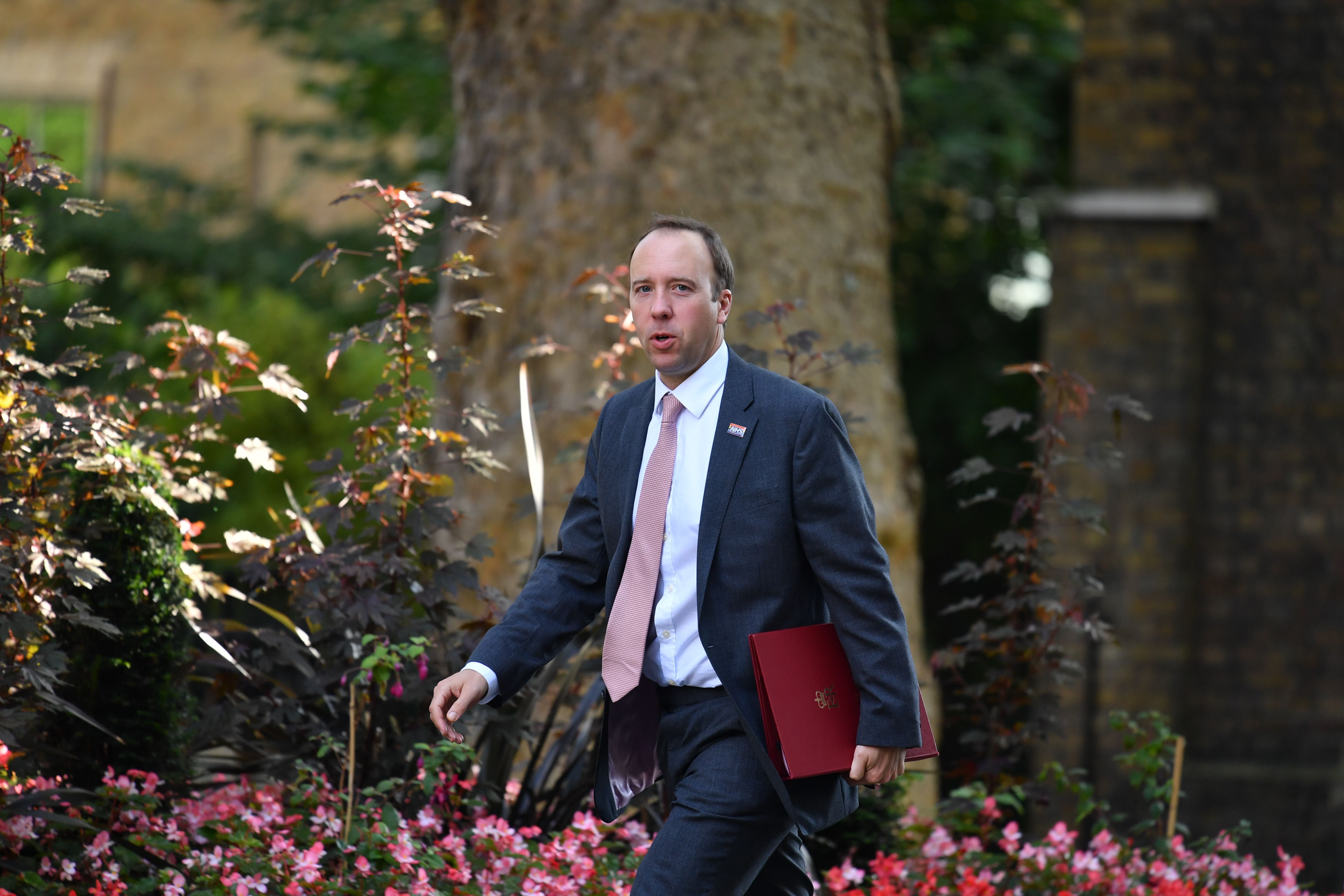If the government doesn’t act now, mental illness will be the second pandemic
If you know that level of suffering may be coming down the tracks, then the government has a duty to take the lead in preparing for it. That means working closely with the mental health organisations


Your support helps us to tell the story
From reproductive rights to climate change to Big Tech, The Independent is on the ground when the story is developing. Whether it's investigating the financials of Elon Musk's pro-Trump PAC or producing our latest documentary, 'The A Word', which shines a light on the American women fighting for reproductive rights, we know how important it is to parse out the facts from the messaging.
At such a critical moment in US history, we need reporters on the ground. Your donation allows us to keep sending journalists to speak to both sides of the story.
The Independent is trusted by Americans across the entire political spectrum. And unlike many other quality news outlets, we choose not to lock Americans out of our reporting and analysis with paywalls. We believe quality journalism should be available to everyone, paid for by those who can afford it.
Your support makes all the difference.Matt Hancock has one of the toughest jobs in government right now. It is not his fault that a global pandemic chose his time as health secretary to strike. And though I can and do criticise much about his and the government’s handling of Covid-19, I cannot fault his work-rate, or his willingness to put himself out there.
But - and it is a big but - there is one part of his brief where he has frankly been missing in action. Mental health.
The Royal College of Psychiatrists has warned that mental illness will be “the second pandemic”. Even with a little aiming off for the fact that any professional body is a vested interest hoping for attention and resources for their field from the government, the reasons for their concern are fairly obvious.
Just think of the mental health consequences for NHS staff who were dealing with Covid at the height of the pandemic; or for all the low-paid key workers who have kept our infrastructure going; for families unable to say farewell, console or bury loved ones; for parents trying to teach, work full-time and pretend everything was all right; for children removed from their friends and trapped for months in their homes, the school year wiped out along with the exams they studied for, now trying to make up for lost time; for couples forced to confront unfixable cracks in their relationships; for people old and young having to learn to fear strangers.
Everyone has had something of a taste of anxiety bordering on paranoia. Then there has been the isolation for so many, with no physical contact to comfort them. No hugs or even hand-shakes. Social distancing may be necessary. But that doesn’t make it good for anyone.
And then think of the mental health consequences of the economic hit that we have already taken, which is going to get worse as recession bites, with Brexit thrown in to add fuel to the economic fire.
Take your mind back to the global financial crisis. I remember former Labour MP Alan Milburn telling me that for a while as the crisis played out, several train journeys to and from his North East constituency were disrupted by a passenger on the line. Working with mental health campaigns and charities, I have noticed that a lot of the big banks and financial institutions have in recent times taken a closer interest in mental health and wellbeing. This is partly because companies have become more aware of the high level of mental health issues among staff.
A report by Professor Ian Hickie of the University of Sydney's Brain and Mind Centre has warned that suicide rates could rise by up to 50 per cent in the wake of the catastrophic and prolonged economic impacts of Covid-19. The report argued that the “best case scenario” was a 25 per cent increase in suicides in Australia, with the likelihood that about 40 per cent of those will be among young people. Professor Hickie said the modelling indicated if the economy deteriorated further, that figure would escalate to a 50 per cent increase in the number of lives lost to suicide, with rural and regional areas hardest hit.
For Australia as a whole this would mean between 750 and 1,500 additional deaths in the next year on top of the 3,000 suicide deaths that occur annually already, and he warned that those numbers are likely "to persist for up to five years if the economic downturn lasts more than 12 months". So that is Australia, which has had just 26,000 cases and 762 Covid deaths. What the eventual impact in the UK might be, with deaths in the tens of thousands, and the Bank of England forecasting the economy to shrink by 14 per cent whilst unemployment doubles, is anyone’s guess, but it is not a happy situation.
Even before Covid, suicide was the biggest killer of young men in Britain, and the most recently published suicide rate was at its highest for two decades. Not for nothing is the word for a sustained economic slump - depression. It certainly seems inevitable that as we emerge from this crisis, we will do so accompanied by a veritable tsunami of psychological and psychiatric distress.
If you know that level of suffering may be coming down the tracks, then the government has a duty to take the lead in preparing for it. That means working closely with the mental health organisations who operate on the front line, with those most vulnerable.
Yet Labour’s shadow mental health minister Rosena Allin-Khan established through Freedom of Information requests that Mr Hancock did not have a single meeting with a mental health organisation during the first three months of lockdown (March, April or May).
I know enough about government to know it is not just about who ministers see, but how they delegate, and I know the minister specifically responsible for mental health, Nadine Dorries, has seen people from the sector a little more than her boss. But her profile inside and, on this issue at least, outside the government, is low, and this does not strike me as a government focused on the planning required to meet a challenge that is inevitably coming. Of course, Hancock has to focus on the immediate crisis in hand. But he also has to look ahead to problems coming down the track, and try to avoid them becoming full-blown crises too.
Not long after he was appointed to his current job by Theresa May, he hosted a “global mental health summit” and spoke of his desire for the UK to become a world leader in mental health. He asked me to speak at it, which I did. He said that it was fantastic that more and more people are speaking out about mental health, which it is. But we really should be well past the talking stage. We need to be doing.
We all have a role to play, government in shaping and funding services, the health service and the charitable and voluntary sector in delivering them, employers in doing more to support the mental wellbeing of staff, and ourselves as individuals in doing what we can to look after our own mental health.
If we are as badly prepared for the second pandemic as we were for the first, and the government is as slow to get a grip of it, a lot of people are in for a lot of pain.
Alastair Campbell is an ambassador for Time to Change. His latest book, Living Better: How I Learned to Survive Depression, is out now in hardback, audio and ebook



